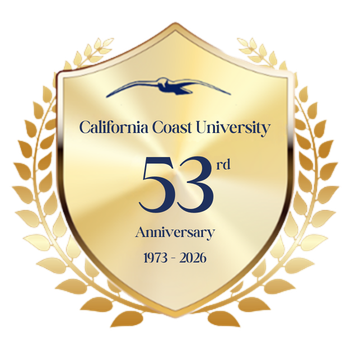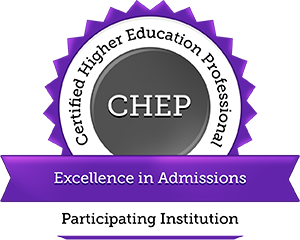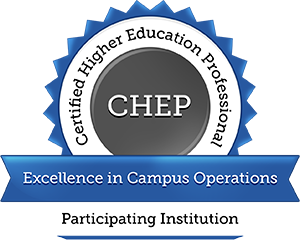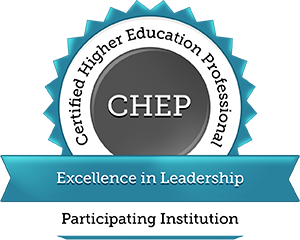|
BAM 105 |
Introduction to Business |
3 |
Introduction to Business introduces the business world and the contemporary environment in which it operates. How business operations are managed and organized will be explored and the basic ideas of marketing processes and consumer behavior will be discussed. Additionally, students will become aware of the changing face of business, with its current technological and management information system advances.
Course Objectives:
Upon successful completion of this course, students will be able to:
- Describe the types of ethical and social responsibility issues that affect the contemporary business environment.
- Explain how businesses, operations, and people are organized and managed.
- Demonstrate an understanding of the principles of marketing, including marketing processes, consumer behavior, customer relationships.
- Explain the financial issues facing business today, including money, banking, securities and investments.
- Demonstrate an understanding of the utilization of information technology within a business environment.
- Demonstrate proficiency with academic writing related to the introduction to business course content.
|
|
BAM 306 |
Principles of Marketing |
3 |
Principles of Marketing examines the various functions of modern marketing including the market, product and price systems, distribution structure, and promotional activities. The course covers services, nonprofit and for-profit organization marketing including the planning, implementation, evaluation, and control of the marketing effort. Ethics in marketing and socially responsible global marketing are also explored.
Course Objectives:
Upon successful completion of this course, students will be able to:
- Define and describe the multiple factors related to the field of marketing.
- Analyze the various types of market opportunities.
- Examine concepts related to product, pricing, and distribution decisions.
- Demonstrate an understanding of promotion and communication strategies.
- Demonstrate proficiency with academic writing related to marketing.
|
|
BAM 315 |
Principles of Management |
3 |
Principles of Management serves as an introduction to the discipline of management. It is designed to integrate the accepted theories in the area with real world applications to provide students with the basic knowledge and skills needed for managing others. This course begins with a discussion of the current issues in management and then proceeds to cover the traditional functions of management: planning, organizing, leading, and controlling. By the end of this course, students should have an understanding of the needs of modern public and private organizations, including emerging national and international trends.
Course Objectives
Upon successful completion of this course, students will be able to:
- Examine the role of managers in organizations, and identify the value of studying management.
- Describe managerial challenges and issues relating to ethics, diversity, and social responsibility.
- Demonstrate an understanding of management functions including planning and managing strategy.
- Examine organizational structure and human resources in relation to managing, organizing, and leading individuals and teams within the organization.
- Demonstrate proficiency with academic writing related to management.
|
|
BAM 350 |
Project Management |
3 |
Project Management will introduce students to the various phases of project management which include project initiation, project planning, and project execution. Topics will include project strategy and selection, conflict resolution, managing for stakeholders, activity planning, budgeting, risk management, scheduling, resource allocation, monitoring and information systems, project control and auditing, and project closure.
Course Objectives:
Upon successful completion of this course, students will be able to:
- Define and explain the foundations of project management.
- Discuss best practices for project initiation including project strategy, project selection, resolving conflicts, and managing for stakeholders.
- Demonstrate an understanding of project planning related to activity planning, budgeting, risk management, scheduling, and resource allocation.
- Discuss the key elements of project execution including project control, project auditing, project closure, and monitoring information systems.
- Describe the role of project managers, their main responsibilities, and the key attributes which contribute to successful project managers.
- Demonstrate proficiency with academic writing related to project management.
|
|
BAM 411 |
Human Resource Management |
3 |
Human Resource Management explores the fundamentals of human resource management and its significance to a company’s success. Examined, in detail, are HR functions such as recruitment, retention, appraisal, compensation, labor relations, development, and current trends in the field. Practical skills-oriented concepts and techniques are highlighted throughout the course, as is the emphasis on building and maintaining an engaged and productive workforce.
Course Objectives
Upon successful completion of this course, students will be able to:
- Identify and define human resource management, and describe major trends and best practices related to the field.
- Demonstrate an understanding of staffing and training issues related to human resource management.
- Develop an understanding of compensation plans and total rewards.
- Recognize the importance of employee and labor relations, social responsibility, ethics, and risk management as they relate to the field.
- Identify the issues of managing human resources on a global scale.
- Demonstrate proficiency with academic writing related to human resource management.
|
|
BAM 418 |
Small Business Management |
3 |
Small Business Management presents an overview of entrepreneurship, including launching a new venture, managing an ongoing venture, financial planning, taxation, and other topics specific to entrepreneurs. Students will learn the necessary elements to successfully start, run, and manage a small business and be able to apply those concepts and ideas within their business careers, even if they do not choose the entrepreneurial route.
Course Objectives
Upon successful completion of this course, students will be able to:
- Demonstrate an understanding of the basics and challenges of small business management including its role in the U.S. economy.
- Recognize the importance of strategic planning and early decisions in small business management.
- Describe key principles of financial and legal management.
- Explain aspects of marketing in small business in relation to products and services.
- Demonstrate proficiency with academic writing related to small business management.
|
|
BAM 421 |
Operations Management |
3 |
Operations Management introduces the theory and practice of operations management and explores the systems approach to tie information together. The course explores issues in operations strategy, development, and implementation. Students will be able to apply various management tools, such as inventory management and supply-chain management, to effectively contribute to managing business operations.
Course Objectives
Upon successful completion of this course, students will be able to:
- Identify and define operations management and assess why it is important to businesses.
- Develop an understanding of product design and process management.
- Demonstrate an understanding of best practices related to process performance improvement, utilizing business forecasting, capacity planning, inventory management, and supply chain design.
- Analyze important issues relating to operations management including location, project management and trends influencing the field.
- Demonstrate proficiency with academic writing related to operations management.
|
|
HCA 200 |
The United States Health Care System |
3 |
The United States Health Care System course is designed to introduce students to the organization, structure, and operation of the nation’s health care system. This course aims to help students effectively identify their present and future roles as consumer, provider, manager, decision-maker, and analyst. The course examines an overview of the health care system, causes and characteristics of health service utilization, the nature of wellness and disease, individual provider settings, financial and nonfinancial resources used and needed, and the measurement of quality of care.
Course Objectives
Upon successful completion of this course, students will be able to:
- Define health and healthcare key terminology, and analyze the role and process of healthcare in America.
- Describe aspects of employment in healthcare delivery including key personnel and the required education and training.
- Examine the various delivery systems in healthcare and discuss related legal, ethical, and political issues.
- Analyze issues in the healthcare industry regarding research, cultural competency, and international applications.
- Demonstrate proficiency with academic writing related to the United States healthcare system.
|
|
HCA 320 |
Essentials of Managed Health Care |
3 |
Essentials of Managed Health Care focuses on health insurance as it impacts the management of healthcare organizations. This course provides a systematic overview of the history of managed healthcare and health insurance in the United States, types of health plans and available payers, the provider network, utilization management, quality management, accreditation, Medicare Advantage, Medicaid managed care, and laws and regulations in health insurance and managed care.
Course Objectives
Upon successful completion of this course, students will be able to:
- Discuss the major forces shaping health insurance and managed care today.
- Examine the basic elements of health benefits coverage and provider payment options.
- Describe the basic components of utilization management for medical services.
- Explain the Medicare and Medicaid benefit structures.
- Identify key state and federal laws and regulations governing managed care.
- Demonstrate proficiency with academic writing related to the essentials of managed care.
|
|
HCA 340 |
Cultural Diversity in Health and Illness |
3 |
Cultural Diversity in Health and Illness promotes an awareness of the dimensions and complexities involved in interactions between health professionals and patients from diverse socio-cultural backgrounds. It examines different cultural perspectives regarding health, illness and health care that exists within American society by demonstrating traditional health beliefs and practices among selected populations. Emphasis is placed on the importance of having culturally competent health care professionals to better serve an increasingly diverse population.
Course Objectives
Upon successful completion of this course, students will be able to:
- Define and describe the importance of cultural and linguistic competence in healthcare.
- Examine the various health domains including health, healing, and familial traditions.
- Analyze trends in healthcare and describe current issues and barriers to healthcare.
- Discuss health care problems in various demographic groups.
- Demonstrate proficiency with academic writing related to cultural diversity in health and illness.
|
|
HCA 420 |
Medical Law and Ethics |
3 |
Medical Law and Ethics explores the study of medical ethics, or applied ethics, for healthcare professionals who often face dilemmas that are not experienced by the general population. The fast-paced growth of medical technology has made the study of ethics even more relevant. The study of bioethics, or biomedical ethics, refers to moral dilemmas due to advances in medicine and medical research. Since medical law and ethics are often interrelated, students need to have a clear understanding of both in order to protect themselves, their employer, and the patient. The study of ethics includes many questions for which there is no one answer.
Course Objectives
Upon successful completion of this course, students will be able to:
- Define medical law, ethics, and bioethics and examine why it is important to study them.
- Examine the legal environment of healthcare including the legal and court systems and essential laws for healthcare professionals.
- Describe issues related to the healthcare environment regarding liability, confidentiality, and the physician-patient relationship.
- Demonstrate an understanding of medical ethics and describe future trends in healthcare.
- Demonstrate proficiency with academic writing related to medical law and ethics.
|
|
MKT 230 |
Consumer Behavior |
3 |
Consumer Behavior explores how the human experience is affected by consumption and how consumers seek value to address other needs. This course examines the internal, external, and situational which affect consumer behavior. The course also covers the role of consumption, value, and satisfaction on consumer behavior.
Course Objectives
Upon successful completion of this course, students will be able to:
- Define consumer behavior, and explain its role in business and society.
- Discuss the internal influences on consumer behavior including perception, cognition, motivation, emotion, personality, and attitude.
- Discuss the external influences on consumer behavior including culture, groups, and interpersonal factors.
- Describe the situational influences which affect consumer behavior and the major perspectives on consumer decisionmaking.
- Explain the role of consumption, value, and satisfaction on consumer behavior.
- Demonstrate proficiency with academic writing related to consumer behavior.
|
|
MKT 310 |
Advertising and Promotions |
3 |
Advertising and Promotions will allow students to see a collective picture of integrated marketing communications. Focus is placed on business-to-business marketing concepts, international marketing discussions, brand management, and various advertising and promotional tactics. This is an integrated approach with a solid advertising core.
Course Objectives
Upon successful completion of this course, students will be able to:
- Describe and examine the foundations and role of advertising, promotion, and marketing.
- Analyze the communications process and examine the role of consumers, ad agencies, and other marketing communication organizations.
- Evaluate objectives and budgeting for integrated marketing communications programs and describe the process of development.
- Demonstrate an understanding of monitoring, evaluation, and control in measuring program effectiveness.
- Examine regulations, global applications, social, ethical and economic issues related to advertising and promotions.
- Demonstrate proficiency with academic writing related to advertising and promotions.
|
|
MKT 333 |
Marketing Management |
3 |
Marketing Management presents marketing management as a core business activity involving everyone in the firm, not just the marketing department, and is structured to improve individual, unit, and organizational performance as it continually adapts and adjusts to the marketplace of the 21st century. Topics covered include: the major challenges facing marketing today; virtual, digital, and social marketing management; analytics, metrics, and measurements available through new technologies; customer-centric and service marketing orientations; branding and brand equity; and global, ethical, legal, and sustainable marketing practices.
Course Objectives
Upon successful completion of this course, students will be able to:
- Define and examine issues currently impacting marketing management (i.e. global, ethical, sustainable, strategy, planning, and competition considerations).
- Discuss best practices for using information to drive marketing decisions.
- Evaluate the essential role of the product experience in marketing.
- Demonstrate an understanding of the key elements of pricing decisions and delivering the value offering.
- Examine the role of promotion and advertising in communicating the value offering.
- Demonstrate proficiency with academic writing related to marketing management.
|
|
PSY 102 |
Introduction to Psychology |
3 |
Introduction to Psychology introduces the methods and findings of contemporary psychology and investigates how psychological science can be applied to the world around us. Emphasizing the need for scientific and critical thinking, topics include a survey of biology and behavior, sensory processes, human development, learning and motivation. Emotion, personality, psychological disorders, therapy, and social interaction are also examined to provide students with a solid understanding of the facts, principles, and theories which make up the field of psychology.
Course Objectives
Upon successful completion of this course, students will be able to:
- Discuss the historical foundations of the field of psychology, the function of the brain on behavior, stages of human development, and psychology as a scientific field of study.
- Demonstrate an understanding of processes related sensation and perception, states of consciousness, conditioning and learning, memory, cognition, language, and intelligence.
- Examine motivation and emotion, sexuality and gender development, and personality development.
- Evaluate psychological disorders and psychotherapies.
- Examine key concepts related to the fields of health psychology and applied psychology.
- Demonstrate proficiency with academic writing related to the field of psychology.
|
|
PSY 116 |
Psychology of Gender |
3 |
Psychology of Gender examines the biological, cultural, and historical factors that influence the development of gender roles and identities. Stereotypes of masculinity and femininity are examined, and the impact that these ideas have on our lives at the personal, social, and institutional levels are explored.
Course Objectives
Upon successful completion of this course, students will be able to:
- Define sex, gender and gender identity, and discuss how gender movements have shaped history.
- Examine biological, social, cognitive, emotional, and communicative factors related to gender development.
- Evaluate issues related to gender stereotyping, discrimination, and power.
- Describe the factors related to gender that affect health and wellbeing.
- Demonstrate proficiency with academic writing related to the psychology of gender.
|
|
PSY 220 |
Developmental Psychology |
3 |
Developmental Psychology introduces students to the scientific study of patterns of change and stability that occur as we move through the process of human development from conception to death. Various theories of development will be presented and an emphasis on physical, emotional, cognitive, and psychosocial changes throughout the lifespan will be discussed.
Course Objectives
Upon successful completion of this course, students will be able to:
- Define human development, discuss how it is studied, and examine the major theories and stages of development from infancy to late adulthood.
- Examine the genetic, environmental, and physical factors related to the varying developmental stages.
- Evaluate the factors of sensation, perception, cognition, memory, learning, intelligence, creativity, and language related to the varying developmental stages.
- Demonstrate an understanding of the self, personality, social and moral development, gender roles, sexuality, emotions, attachment, and relationships related to the varying developmental stages.
- Demonstrate an understanding of unique factors related to developmental psychology, psychopathology, death, and bereavement.
- Demonstrate proficiency with academic writing related to developmental psychology.
|
|
PSY 228 |
Social Psychology |
3 |
Social Psychology offers students an in-depth look at how people come to understand themselves and others in a social context, with considerable emphasis on society’s role in social psychology. Each chapter in this course will introduce students to key individuals within the realm of social psychology whose research has made a significant contribution to the field.
Course Objectives
Upon successful completion of this course, students will be able to:
- Define the field of social psychology and describe its foundations, key terms, and theories.
- Examine theoretical perspectives related to social psychology and research methodologies.
- Evaluate the individual in society including stratification, self and identity, and socialization over the life course.
- Analyze the various areas of social life.
- Demonstrate proficiency with academic writing related to social psychology.
|
|
PSY 380 |
Personality Theories |
3 |
Personality Theories introduces students to key scientific perspectives on human personality. This course examines major theoretical approaches, including psychodynamic, psychoanalytic, behaviorist, phenomenological, biological, and cognitive frameworks: to understand how personality develops, functions, and is assessed. In addition, this course emphasizes research methods and contemporary assessment practices used to study personality, fostering connections between theory, empirical evidence, and real-world applications.
Course Objectives
Upon successful completion of this course, students will be able to:
- Analyze the foundational principles underlying major personality theories within cultural and social contexts.
- Compare and contrast psychodynamic and psychoanalytic approaches to personality development.
- Apply behaviorist and phenomenological concepts to interpret observable patterns of human behavior.
- Evaluate biological and cognitive approaches in explaining personality structure and variation.
- Examine methods used in personality research and psychological assessment.
- Demonstrate proficiency with academic writing related to theories of personality.
|
|
PSY 408 |
Abnormal Psychology |
3 |
Abnormal Psychology offers students an integrative approach to the study of psychopathology, drawing on contributions from various disciplines and theoretical stances. Through clinical case studies, the psychosocial and psychophysiological factors of abnormal behavior are examined, along with the exploration of prevention efforts and research-based advancements in the field.
Course Objectives
Upon successful completion of this course, students will be able to:
- Define abnormal behavior and describe the historical conceptions of abnormal behavior.
- Demonstrate an understanding of the various types of psychological disorders, their causes, and types of treatment.
- Examine the processes of clinical assessment, diagnosis, and research in psychopathology.
- Evaluate the legal and ethical issues that pertain to mental health services.
- Demonstrate proficiency with academic writing related to abnormal psychology.
|
.png)










.jpg)






